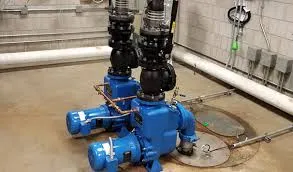English
- Afrikaans
- Albanian
- Amharic
- Arabic
- Armenian
- Azerbaijani
- Basque
- Belarusian
- Bengali
- Bosnian
- Bulgarian
- Catalan
- Cebuano
- Corsican
- Croatian
- Czech
- Danish
- Dutch
- English
- Esperanto
- Estonian
- Finnish
- French
- Frisian
- Galician
- Georgian
- German
- Greek
- Gujarati
- Haitian Creole
- hausa
- hawaiian
- Hebrew
- Hindi
- Miao
- Hungarian
- Icelandic
- igbo
- Indonesian
- irish
- Italian
- Japanese
- Javanese
- Kannada
- kazakh
- Khmer
- Rwandese
- Korean
- Kurdish
- Kyrgyz
- Lao
- Latin
- Latvian
- Lithuanian
- Luxembourgish
- Macedonian
- Malgashi
- Malay
- Malayalam
- Maltese
- Maori
- Marathi
- Mongolian
- Myanmar
- Nepali
- Norwegian
- Norwegian
- Occitan
- Pashto
- Persian
- Polish
- Portuguese
- Punjabi
- Romanian
- Russian
- Samoan
- Scottish Gaelic
- Serbian
- Sesotho
- Shona
- Sindhi
- Sinhala
- Slovak
- Slovenian
- Somali
- Spanish
- Sundanese
- Swahili
- Swedish
- Tagalog
- Tajik
- Tamil
- Tatar
- Telugu
- Thai
- Turkish
- Turkmen
- Ukrainian
- Urdu
- Uighur
- Uzbek
- Vietnamese
- Welsh
- Bantu
- Yiddish
- Yoruba
- Zulu
Telephone: +86 13120555503
Email: frank@cypump.com
Oct . 30, 2024 17:09 Back to list
clean water pumps
Clean Water Pumps Ensuring Access to Safe Drinking Water
Access to clean drinking water is a fundamental human right, yet millions of people around the world still lack this essential resource. One of the innovative solutions that has emerged to address this critical issue is the clean water pump. These pumps are designed to provide safe, reliable, and sustainable access to clean water, particularly in underserved and remote communities.
Clean water pumps come in various designs and technologies, tailored to meet the specific needs of different locations. Hand pumps, solar-powered pumps, and submersible pumps are among the most common types. Hand pumps are simple, cost-effective, and require no electricity, making them ideal for rural areas. Solar-powered pumps harness renewable energy to operate, making them environmentally friendly and sustainable. Submersible pumps are effective for drawing water from deep underground sources, ensuring access to clean water even in arid regions.
The importance of clean water pumps cannot be overstated. They play a pivotal role in improving public health by providing safe drinking water, which is essential for reducing waterborne diseases. Diseases such as cholera, typhoid, and dysentery are a significant burden in many developing countries, often due to contaminated water sources. By providing access to clean water, these pumps help to lower the incidence of such diseases, thereby improving overall community health.
clean water pumps

In addition to health benefits, clean water pumps contribute to economic development. Access to clean water allows individuals to spend less time searching for water sources and more time engaging in productive activities, such as farming or education. This increased availability of clean water can also boost local economies by enabling better agricultural practices, which are dependent on reliable water sources. Furthermore, communities with access to clean water are more likely to see improvements in education, as children can attend school instead of spending hours collecting water.
Implementing clean water pump projects often involves community participation, which is essential for ensuring sustainability. When local communities are involved in the planning, installation, and maintenance of water pumps, they are more likely to take ownership of the project. This not only ensures that the pumps are well-maintained but also fosters a sense of responsibility and commitment to preserving their water resources.
However, challenges remain in ensuring that clean water pumps are accessible to all. Issues such as funding, maintenance, and infrastructure can hinder the effectiveness of these systems. It is crucial for governments, NGOs, and international organizations to collaborate and provide the necessary resources and support to communities in need.
In conclusion, clean water pumps are a vital tool in the fight for universal access to safe drinking water. They provide essential health benefits, contribute to economic development, and empower communities. With continued investment, innovation, and collaboration, we can work towards a future where everyone has access to clean and safe water, ultimately improving the quality of life for millions around the world.
-
ISG Series Vertical Pipeline Pump - Chi Yuan Pumps Co., LTD.
NewsJul.30,2025
-
ISG Series Vertical Pipeline Pump - Chi Yuan Pumps Co., LTD.|energy-efficient fluid handling&industrial durability
NewsJul.30,2025
-
ISG Series Vertical Pipeline Pump - Chi Yuan Pumps | Advanced Engineering&Industrial Efficiency
NewsJul.30,2025
-
ISG Series Pipeline Pump - Chi Yuan Pumps | High Efficiency, Energy Saving
NewsJul.30,2025
-
ISG Series Vertical Pipeline Pump-Chi Yuan Pumps|High Efficiency&Reliable Performance
NewsJul.29,2025
-
ISG Series Vertical Pipeline Pump|High Efficiency&Low Noise
NewsJul.29,2025










